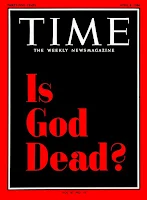From The Princess
Now sleeps the crimson petal, now the white;
Nor waves the cypress in the palace walk;
Nor winks the gold fin in the porphyry font:
The fire-fly wakens: waken thou with me.
Now droops the milkwhite peacock like a ghost,
And like a ghost she glimmers on to me.
Now lies the Earth all Danaë to the stars,
And all thy heart lies open unto me.
Now slides the silent meteor on, and leaves
A shining furrow, as thy thoughts in me.
Now folds the lily all her sweetness up,
And slips into the bosom of the lake:
So fold thyself, my dearest, thou, and slip
Into my bosom and be lost in me.
--Alfred, Lord Tennyson
T.S. Eliot once said that Tennyson had the finest ear of any poet in English since Milton, to which W.H. Auden replied that "he was also undoubtedly the stupidest; there was little about melancholia that he didn't know; there was little else that he did." Thus the Modern dumps on the Victorian, and disillusioned crankiness will always win out over hopeful optimism, which was Tennyson's primary intellectual stance.
But back to that fine ear, which even Auden was willing to grant him. The silken sounds of this lovely little lyric certainly prove the point. And its interpolation into the plodding tedium of The Princess maybe also proves Auden's other point. A professor of mine once called the line "Now lies the Earth all Danaë to the stars" a "sterile conceit," which crushed me, because it was a favorite of mine. I see what he means: The allusion to the myth of Danaë's impregnation by Zeus in the form of a shower of gold (she gave birth to Perseus) doesn't really add anything of substance to the poem. Another professor of mine thinks the image may have been inspired by this painting of Danaë by Titian:
Tennyson's friend Arthur Hallam -- the one he wrote In Memoriam about -- referred to the painting in one of his last letters.
Some think that Tennyson was aiming for the poetic effect of the Persian verse form known as ghazal; it doesn't strictly follow that structure, but the images of lilies and peacocks and the repeated line endings "with me ... on to me ... unto me ... in me ... in me" give it the flavor of a ghazal, which typically has a refrain.








